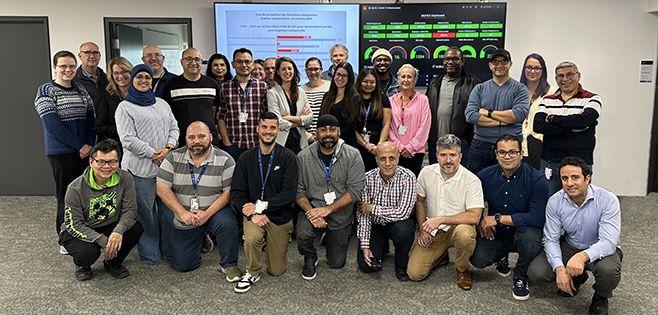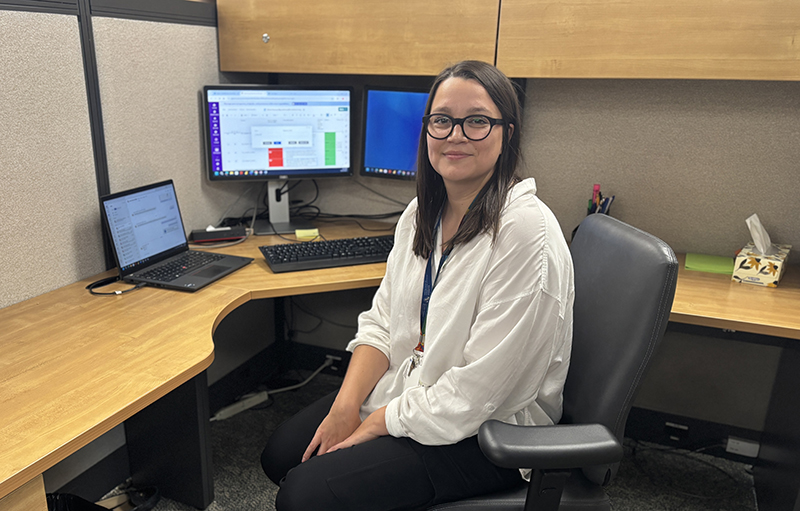In healthcare, IT is vital - Part 3: A recruit from the clinical world

You can work in information technology in many sectors; however, in a hospital, it’s different. Every outage can slow a diagnosis, every delay can postpone care, and every security breach can threaten the confidentiality of some of the most sensitive data. Protecting patients, countering increasingly sophisticated cyber threats, and maintaining a huge network that is active day and night: these are unique responsibilities at the heart of the hospital environment.
Behind these challenges are passionate women and men who have chosen to apply their expertise in the service of healthcare. Their work is measured not just in data, but in lives.
Last week we introduced you to Patrick McClintock and Raif El-Chabab. Over the next two weeks, we will introduce you to two more members of the information technology team, the people behind the technologies we use every day.
A recruit from the clinical world
Camille Francoeur is well acquainted with healthcare challenges: she started out as a dietitian at the Royal Victoria Hospital before shifting her career to IT. Today, as a Planning, Programming, and Research Officer at Infocentre Performance, she works on the integration of MD Clone, a clinical data analysis platform.

This tool allows clinicians and managers to explore and analyze data securely to support their decisions. The data is anonymous, in accordance with the new health information law. “My clinical experience helps me better understand what’s behind the numbers and adds context for my colleagues,” she says.
Camille also contributes to producing Power BI reports and managing the MUHC data warehouse, which is essential for nearly everything related to healthcare. This fast and secure access to data has become an indispensable tool for improving the quality of services.
Experts serving healthcare
Whether it’s deploying clinical applications, analyzing data, supporting newborn screening, or maintaining IT infrastructure, IT professionals share a common belief: in healthcare, IT is not just about systems. It is a direct commitment to patients.